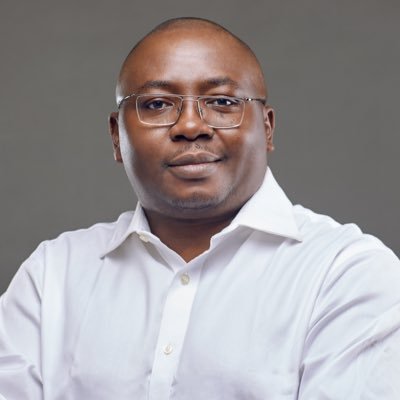Safiu Kehinde
The Minister of Power, Adebayo Adelabu, has claimed that over 40 percent of Nigerians now enjoy 20 hours of electricity.
This was disclosed in a statement issued on Sunday by the Ministry.
According to the statement, Adelabu made this claim ahead of the October 1st celebration while reviewing the activities of the Ministry in the past one year
He said this feat was as a result of many of the revolutionary measures being undertaken by him with the support of President Bola Ahmed Tinubu.
Adelabu stressed that the President had consistently advocated that Nigeria can be great and achieve breakthrough in industrialization, through a stable and consistent power supply.
“Our dear president, President Bola Ahmed Tinubu, included this in the Renewed Hope Agenda as a major electoral policy to Nigerians.
“In his New Year speech on the 1st of January, 2024, he emphasized the need for the country to have stable, functional, and reliable electricity to drive other critical sectors. This is the only way we can achieve the required economic growth and industrial development.
“In fact, none of the critical sectors can function optimally without electricity stability and functionality.
“Therefore, our vision is to ensure that we provide households, businesses, and institutions (educational and health institutions as well as industries) with stable electricity supply.
“This will enable them to power their activities, improve their capacity, and create more jobs.” Adelabu said.
Emphasizing on the need for Nigerians to know that stable electricity in any economy cannot be overemphasized, the Minister disclosed how Tinubu’s administration had promised to replicate power stability as observed in developed countries such as America, China, and South Korea amongst others.
“This is why you see great economies like Korea, China, Europe, and North America industrialized today.
“Their stability in electricity supply has been instrumental to their economic growth and industrial development.
“That’s why we say that we must achieve this for Nigeria as a country. We need to achieve the requisite economic growth and industrial development. Our dear president, President Bola Ahmed Tinubu, included this in the Renewed Hope Agenda as a major electoral policy to Nigerians.
“In his New Year speech on the 1st of January, 2024, he emphasized the need for the country to have stable, functional, and reliable electricity to drive other critical sectors.
“This is the only way we can achieve the required economic growth and industrial development. In fact, none of the critical sectors can function optimally without electricity stability and functionality.
“Therefore, our vision is to ensure that we provide households, businesses, and institutions (educational and health institutions as well as industries) with stable electricity supply. This will enable them to power their activities, improve their capacity, and create more jobs.
“In a country like South Korea, industrial giants like Samsung, Hyundai, and LG didn’t just become global giants overnight.
“They were supported by the government through the provision of stable and reliable electricity for their operations. This is the vision we have for Nigeria.
“At the end of the day, a large proportion of our population will be electrified, industries will enjoy stable electricity, and this will increase production and create employment for our people”, the Minister said.
In the same vein, Adelabu added that the mandate of the ministry is to engender national development through the formulation of appropriate policies, the establishment of proper structures and institutions to ensure or achieve stable, functional, reliable, and affordable electricity supply to households, businesses, institutions, and industries.
“This will enable us to achieve the desired economic growth and industrial development. We also provide general oversight to ensure the overall well-being of the Nigeria Electricity Supply Industry (NESI). This is the mandate of the Ministry.
“However, we are not doing this alone. We work in conjunction with our agencies. These include: Nigerian Electricity Regulatory Commission (NERC); Transmission Company of Nigeria (TCN); Rural Electrification Agency (REA); Nigerian Electricity Management Service Agency (NEMSA); Nigerian Bulk Electricity Trading Company (NBET); National Power Training Institute (NAPTIN); and Nigerian Electricity Liability Management Company (NELMCO).
“These are agencies under the Ministry of Power who are like our foot soldiers.
“Apart from the agencies under the Ministry of Power, we also operate through 27 power generating companies, including hydroelectric power companies and thermal companies (which are gas-powered generating companies).
We also have 11 Electricity Distribution Companies across the country that operates.
“In generation, we rely on the generating companies. In transmission, we rely on the government-owned Transmission Company of Nigeria (TCN), which is a direct agency under the Ministry of Power.
“In distribution, we rely on the 11 distribution companies that we have across the country.
“We also work in conjunction with some international development agencies like the World Bank, the African Development Bank, GIZ, USAID, and so on. These are multilateral institutions that support the Ministry of Power”, Adelabu said.
Meanwhile, Adelabu recalled how his administration had met an installed capacity generation of 13,000 megawatts which only product 4000 megawatts.
Describing it as unacceptable, the Minister disclosed that the installed capacity generation has now increased to 14,000 megawatts of power due to the addition of the newly commissioned Zungeru hydroelectric power plant and improved capacity of some of the existing power plants.
He revealed that power generation now stands as 5,500 megawatts which 40% of Nigerians now enjoy with over 20 hours of regular power supply.


